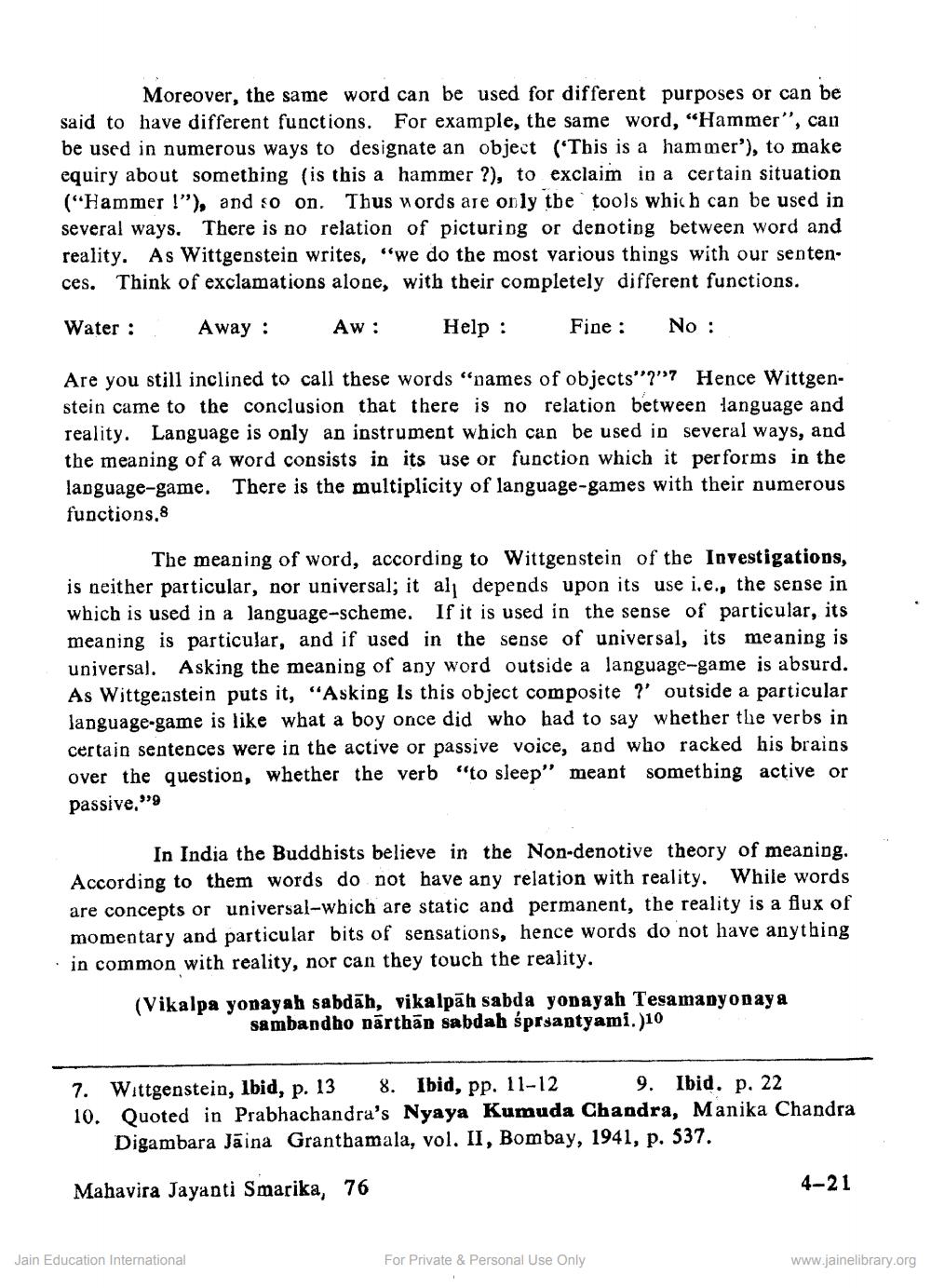________________
Moreover, the same word can be used for different purposes or can be said to have different functions. For example, the same word, "Hammer", can be used in numerous ways to designate an object (This is a hammer"), to make equiry about something (is this a hammer ?), to exclaim in a certain situation ("Hammer!"), and so on. Thus words are only the tools which can be used in several ways. There is no relation of picturing or denoting between word and reality. As Wittgenstein writes, "we do the most various things with our sentenThink of exclamations alone, with their completely different functions.
Aw:
Help:
Fine: No:
Away:
Are you still inclined to call these words "names of objects"?" Hence Wittgenstein came to the conclusion that there is no relation between language and reality. Language is only an instrument which can be used in several ways, and the meaning of a word consists in its use or function which it performs in the language-game. There is the multiplicity of language-games with their numerous functions,8
Water:
The meaning of word, according to Wittgenstein of the Investigations, is neither particular, nor universal; it al depends upon its use i.e., the sense in which is used in a language-scheme. If it is used in the sense of particular, its meaning is particular, and if used in the sense of universal, its meaning is universal. Asking the meaning of any word outside a language-game is absurd. As Wittgenstein puts it, "Asking Is this object composite ?' outside a particular language-game is like what a boy once did who had to say whether the verbs in certain sentences were in the active or passive voice, and who racked his brains. over the question, whether the verb "to sleep" meant something active or passive,"
In India the Buddhists believe in the Non-denotive theory of meaning. According to them words do not have any relation with reality. While words are concepts or universal-which are static and permanent, the reality is a flux of momentary and particular bits of sensations, hence words do not have anything in common with reality, nor can they touch the reality.
(Vikalpa yonayah sabdah, vikalpah sabda yonayah Tesamanyonaya sambandho narthän sabdah sprsantyami.)10
9. Ibid. p. 22
7. Wittgenstein, Ibid, p. 13 8. Ibid, pp. 11-12 10. Quoted in Prabhachandra's Nyaya Kumuda Chandra, Manika Chandra Digambara Jäina Granthamala, vol. II, Bombay, 1941, p. 537.
Mahavira Jayanti Smarika, 76
Jain Education International
For Private & Personal Use Only
4-21
www.jainelibrary.org




